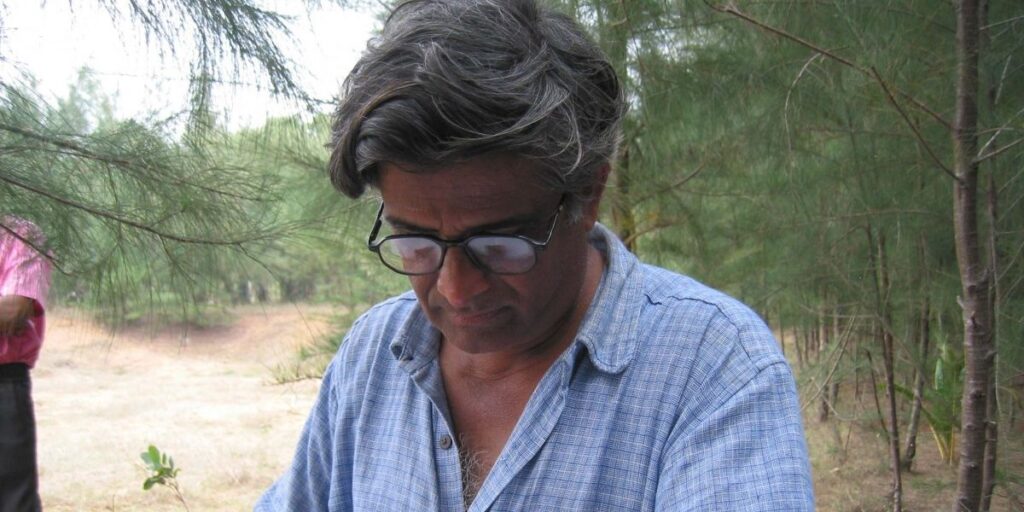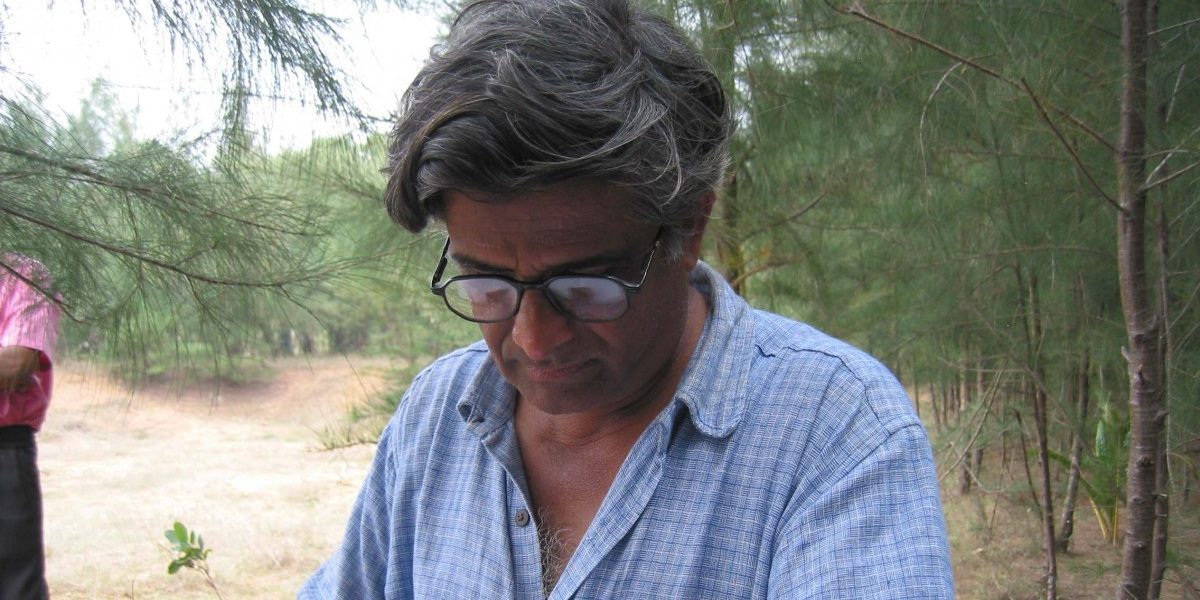
This essay is a reflection of a student of Sociology, a discipline that one has pursued for more than seven years. One has had the privilege and opportunity to be trained in what is often referred to as ‘elite’ institutes. I was trained by teaching faculty who are well-versed in the theoretical underpinnings of the discipline, and who were trained from institutes like the Jawaharlal Nehru University, University of Hyderabad, and the University of Delhi, among other well-named institutes. They introduced us to new areas of thought. However, there was a sense of disconnect, an unfamiliar language which pushed us towards viewing various forms of inequalities and discrimination in the world outside.
Over time one realized that there are methodological animosities between disciplines, which one cannot necessarily put a name to. One felt over time that disciplines that roughly fall under the ‘social sciences’ tend to bear some antagonism towards newly emergent fields such as cultural studies, performance studies, trauma studies and so on. Either party doesn’t need to know the grounds on which the other is based or stands. Perhaps the antagonisms are departmental, personal even. But it can be felt tangibly. The difficulty of writing about such antagonisms is that they cannot be proven as anything concrete; they are simply currents that can be felt.
On one hand, social sciences in some select elite universities, have arbitrary interpretations of what ‘science’ means, and in the Indian context, some institutes at one time were dominantly influenced by the Marxist political-economy framework, and would supposedly flinch at studies based on caste, sexuality and gender as the central basis for analyses. On the other side, departments and courses which emerge as a response to orthodoxy, often tend to ground themselves on the specific ‘identity category’.
There appears no bridge between them, at least in the early years of one’s higher education. After a point, it is of course our responsibility as students, to dig deeper and cultivate our political and ethical frameworks, but it is also necessary to ponder upon how to understand these problems. While on one hand the former can give rise to a rejection of studies on identity, the performance of the same, the role of body, sexuality and so on, the latter can give rise to the romanticisation of one’s own identity, as well as of other’s, policing in the name of ‘what ought to be’, and worse, joining hands with those forces of the market who love utilizing crude identity politics as much as the so-called ‘critical thinkers’.
While I was thinking through these directions by the end of my Master’s in Sociology, it was the period right after that, in my M.Phil. in Social Sciences, that I was introduced to human rights activist and intellectual, Kandalla Balagopal. A detailed and one of the only interviews by him in English on YouTube proved to be very illuminating in various ways. In the interview, he lays down a history of his break-away from the Maoist movement roughly at the start of the 1990s, when discussions between him, along with a few of his comrades, and the party began. It ultimately led them to break away completely and form the Human Rights Forum in 1998. Even so, Balagopal respected the ground effects that the movement had across many regions of United Andhra Pradesh, the fake encounters that killed revolutionaries, of which he wrote in detail, while simultaneously critiquing the loss of life and bloodshed that caught in tussles between state forces and revolutionaries. Balagopal’s writings in the English language are dispersed across several articles written for the Economic and Political Weekly, The Indian Express etc., and several also remained published in academic journals. In them, he has revisited the concept of ‘universal’ in a way which I believe, can be visited by us, students and academics, which may carry the potential to offer a solution to problems of antagonism mentioned above. As articulated by him in his interview, he says,
…..You can never say, I am being oppressed. You have to say, oppression is wrong. That is the only way you can formulate a protest…moment you do that, the principle becomes universal – not universal in the sense of 100 per cent universal – but it finds for itself a class which goes beyond you….
In his corpus of writings reflecting this brief statement, Balagopal, of course, made the above statement in the context of imagining and formulating a protest; any protest. He insists this in his writings on topics ranging from the brute force used by state bodies, problems of displacement, the nature of law enforcement establishments like courts, and their limitations etc., that the work of fighting for and claiming rights should not only be in the hands of a few functionaries like juridical-legal and statutory establishments but should become a general social process in which every community and/or individual should be aware of what it means to live with ‘rights’. Even though the context may differ between how Balagopal speaks about a ‘movement for rights’ and ways through which students of social sciences are needed to think of the ‘social’ within the realm of a given discipline, I believe, such an outlook towards understanding the ‘universal’ and the ‘particular’ is key for students. It gives a framework for how to think through empirical knowledge gained by various techniques we are schooled in.
Though disciplines often push us to learn how to ‘generalize’ from data received through research techniques, the generalization is often seen as a value-laden phenomenon, barring a few exceptions such as those feminist methodologies. In other words, if generalization is arrived at from a moral position, it is dismissed as ‘biased’. So, is scholarship limited to researchers making observations, and publishing them? I am not saying that that should not be the case; claiming that is foolish in today’s scenario which needs scholars to desperately build networks for attaining basic gainful employment in the field. But, I (maybe naively) believe that scholarship is a matter of conscience as well. Many shall deny this, but as someone specializing in Sociology in the field of sexual violence, gender studies, and Sociology of law, I can argue that it is impossible to understand violence on specific bodies by establishing structural and historical constraints regulating the essence of law through a vast, meta-narrative alone.
It is essential to understand dispositional inequality; the claim that an individual or a community makes towards bodily integrity, privacy, and dignity, which at once is embedded in a continuity that draws a line between particular to universal, wherein the universal keeps changing with the given context of the problem – caste-based violence of sexual nature, other kinds of sexual violence in public places, in familial or marital life, land dispossession, displacement of communities, failure of the judiciary in upholding the spirit of the constitution, failure of the constitution in giving enough power directly in hands of people etc. The ‘universal’ may change because as Balagopal claims, there is nothing ‘absolute’ about it, but at any point, when we must think about life with dignity, about a better world, it must be articulated in a universal realm alone, but at some point, with a moral frame. i.e. beyond the ‘I’ or ‘you’ – as such a ‘universal’ shall cover the ‘particular’ anyway. Reiterating the above problem of antagonisms, this conundrum of ‘particular’ and ‘universal’ can be solved if thought in terms of understanding the ‘universal’ in Balagopal’s sense of an abstract realm, which has a strong moral framework but also does not claim ‘absolute’ totality.
References:
Zoominvj. (2021, October 1). Interview of Balagopal by Deepa Dhanraj. Balagopal.
https://balagopal.org/interview-of-balagopal-by-deepa-dhanraj/, accessed on 5th October 2022.
***
Anamika Das is a PhD scholar at the Department of Sociology, at the University of Hyderabad. Her interests lie in the Sociology of law, feminist jurisprudence, and gender studies.
